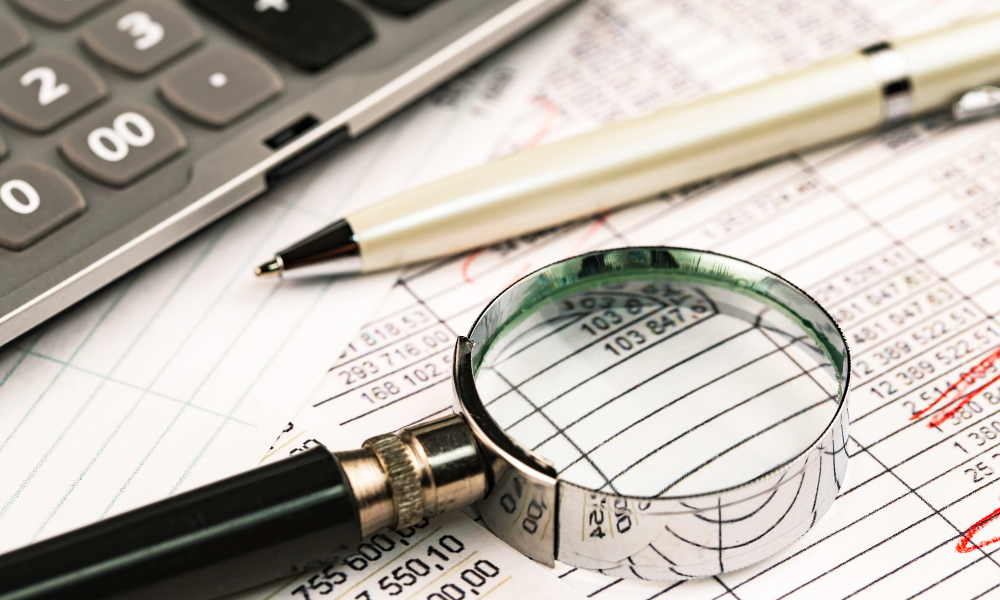While there is clearly much more to be done, today we are beginning to be able to broaden our focus from a pure risk and return perspective, to thinking about the role of investors in generating results in the real world. The pandemic served as the first test point for sustainability, underlining the fact that ESG investment does not have a cost, but more than that, it can guarantee the future of investments and, in some cases, increase returns, all at the same time, helping to shape a better future. Faced with this crisis, the facts now prove the resilience of sustainable investment and the important relationship between sustainability and the role of accountants.
It's worth taking a step back in time. A global survey of companies and institutional investors commissioned by ING, back in 2021, showed the pandemic as a moment that accelerated most companies' sustainable transformation plans. At the same time, investors began to demand that companies set stricter environmental goals. At the time, according to the survey report, 57 percent of companies say they are accelerating green transformation plans and 62 percent are likely to link executive compensation to environmental goals.
Another Financial Times article, published in 2020, explored the reasons why the year was rewarding in terms of sustainability, whether due to lower exposure to fossil fuels or better corporate practices such as supply chain management and corporate governance, making companies more resistant to shocks and able to overcome crises. There is no doubt that the pandemic crisis strengthened the defense of responsible investment and the relationship between sustainability and the role of accountants increased even more.
From then on, a great change was noticed: of organizations seeing themselves as part of the solution and not just of the problem, thus understanding how important it is not only to preserve, but to recover what has been degraded. The great change in behavior led companies to reflection and changes, whether in products or in the production process, and the topic began to require humanist leadership, guided by values and ethics, a profile that is increasingly significant.
The world needs organizations interested in more than just zero impacts and for that they must be part of the solution and protagonists of a new economy.
RELATIONSHIP BETWEEN SUSTAINABILITY AND THE ROLE OF ACCOUNTANTS Sustainability describes a world where resources are at least maintained and that do not consume their capital, whether natural, economic, social, or human. His vision is that businesses are connected to communities and the natural world, functioning in a larger society and contributing to this. Business and society are not separate and, in fact, depend on each other to work.
When we talk about sustainability and the role of accountants, our ambition is to change behavior to generate sustainable results. To this end, we aim to be bold, radical and open-minded. The unifying theme of our work is to explore how organizations and markets are motivated to deliver sustainable results and what is the role of information flows. Our goal is to be at the forefront of thinking and action in sustainability, focusing on how organizations adopt it in their activities.
We're looking at and thinking about many different aspects of sustainability:
· The concept of natural capital and how it is applied in finance and business;
· The future of the financial system;
· How to help our members with accounting and sustainability;
· How the economic system can support sustainable outcomes;
· The role of social enterprises in the development of sustainable communities;
· System change;
· Innovation processes;
· Using creative thinking to deal with important issues;
· Supporting communities of change-makers;
Generating information in the broad concept of sustainability and being an instrument for the organization's complete management is possible through the GRI model sustainability report and also the Integrated Report.
Still thinking about the relationship between sustainability and the role of accountants, the accountant also plays a role in sustainability actions, as it needs to be measured, reported and guaranteed. These areas of expertise naturally fall within the competence of an accountant. Good quality, reliable and appropriately targeted information is vital for sustainable development.
Companies need to modify their behavior based on information. Accounting information can provide performance feedback, which guides management decisions about the future.
Organizations need to operate proactively, anticipate sustainability issues before they arise, and find new business opportunities in this changing environment.
The proper functioning of these mechanisms depends on the availability of accurate and reliable information and the guarantee of this non-financial data. Accountants are experienced in providing information and assurance and as business decision makers. They are also involved in drafting the company's strategy.
Statutory auditors can be involved in a wide variety of activities, including:
· Implement energy efficiency measures (and, therefore, cost savings);
· Formulate and implement corporate responsibility policies;
· Management information systems design — for example, around negotiable licenses and carbon emissions;
· Assurance of supply chain processes and procedures;
CORPORATE TRANSPARENCY — Connectivity between sustainability and the role of accountants The GRI sustainability reporting standards are the most commonly accepted global standards for sustainability reporting by companies, developed to allow consistent reporting across companies and sectors, providing clearer communication to stakeholders regarding sustainability issues. The standards are available for reporting on a wide range of ESG-related topics, ranging from anti-corruption practices to biodiversity.
In the case of the revised universal standards, in addition to enhanced transparency about human rights and an improved approach focusing on due diligence, they bring a greater focus on determining material sustainability topics, together with clarity about the principles, requirements, and reporting structure. According to the GRI, universal standards will position organizations to meet emerging regulatory reporting requirements, such as the EU Corporate Sustainability Reporting Directive and IFRS plans for business value standards.
COMPANIES ALREADY STOOD OUT IN THE INTEGRATED REPORT Sustainability has already become a focus of concern for many leaders and investors and that is why the relationship between sustainability and the role of accountants is so important. Society is increasingly interested in these issues within organizations, questioning whether information is being disclosed correctly and with quality. Generating information in the broad concept of sustainability and being an instrument for the organization's complete management is possible through the GRI model sustainability report and also the Integrated Report.
Integrated Reporting is a corporate communication process that integrates financial and non-financial information, with equal criteria and quality, contributing to business management, reducing information asymmetry and controlling risks. It uses a framework that can help these pillars provide a clear and concise explanation of how an organization uses capital to create value now and for the future. After all, business and society are not separate and, in fact, they depend on each other to work.
In 2022, SANASA CAMPINAS won an excellence award for being one of the few sanitation companies with audited Integrated Reporting. A positive factor for the sector, as business leaders are increasingly understanding the importance of disclosing sustainability metrics, with the certainty that transparency and the issuance of reports in an appropriate time frame have an impact on organizational performance and reputation. The assurance of this information by a recognized company gives credibility to the reports released by the organization to interested audiences.
Although the purpose of Integrated Reporting is to increase the transparency of accountability and improve the quality and depth of the information presented, its process goes further, representing value creation and a guarantee that the organization's leadership safeguards the principles of good governance, risk management, and continuous concern for the organization's future.
Although Integrated Reporting is a new approach in Brazil, it can provide important subsidies for the value it can bring, especially in relations with shareholders, who together with other stakeholders need to understand the company in its entirety, from its business model to environmental actions. Shareholders prioritize the search for economic-financial information, but they also began to seek socio-environmental information, since they realized that companies that improve the quality of their information, make more assertive decisions.
Companies need to modify their behavior based on information. Accounting information can provide feedback about performance, which guides management decisions about the future. The proper functioning of these mechanisms depends on the availability of accurate and reliable information and the guarantee of this non-financial data. Accountants are experienced in providing information and assurance and as business decision makers. They are also involved in drafting the company's strategy.
THE ROLE OF ENVIRONMENTAL ACCOUNTING IN THE SUSTAINABLE MANAGEMENT OF COMPANIES Environmental accounting is an important tool for the sustainable management of companies, as it allows them to assess the impact of their activities on the environment and implement sustainable practices to minimize this impact.
In the relationship between sustainability and the role of accountants, environmental accounting in the sustainable management of companies includes, for example, the identification of environmental costs. In other words, environmental accounting allows companies to identify the costs associated with pollution and the depletion of natural resources, which can help them make more informed decisions about their processes and products.
It also includes environmental risk analysis, where environmental accounting can help companies assess the environmental risks associated with their activities, as well as opportunities for improvement. This can help the company anticipate environmental regulations and prepare for market changes.
Regarding the monitoring and disclosure of environmental information, environmental accounting allows companies to monitor and disclose information about their environmental performance, including greenhouse gas emissions, energy and water consumption, among others. This information can be useful to demonstrate the company's commitment to sustainability and to improve transparency.
Environmental accounting can also help companies identify opportunities for improvement in their processes and products, allowing them to increase efficiency and reduce costs, while minimizing their environmental impact.
By implementing environmental accounting in their operations, companies can better manage their environmental impacts and minimize risks associated with environmental regulation and market changes. In addition, environmental accounting can help companies demonstrate their commitment to sustainability to their stakeholders , including shareholders, customers, and the local community.
Research shows that environmental accounting can encourage companies to invest in clean and sustainable technologies, promoting innovation. We have already seen numerous innovations aimed at sustainability in companies, which shows that environmental accounting plays an important role in the sustainable management of companies, allowing them to assess and manage their environmental impacts, identify opportunities for efficiency, and demonstrate their commitment to sustainability.
Laws related to ESG (Environmental, Social and Governance - Environmental, Social and Governance, in Portuguese) have gained increasing attention in recent years due to the growing concern with environmental, social and corporate governance issues.
Brazil Leads the Countries That Adopted the New Criteria of the International Sustainability Standards Council Brazilian companies, especially publicly traded companies, are preparing for a transition in the format of reporting their results, opportunities, and risks related to sustainability. After the launch, on 26/06/2023, of the new standards for IFRS sustainability reporting, the CVM - Securities and Exchange Commission recently issued a resolution on 20/10/2023 for companies to submit this sustainability and ESG risk management information, making voluntary membership by 2026 and after that deadline mandatory for publicly traded companies, investment funds and securitizers.
The decision places Brazil in the lead of the countries that adopted the new criteria of the International Council for Sustainability Standards (ISSB) regarding sustainability reports from Brazilian companies.
Adherence to the measure will be voluntary until 2026, when it will become mandatory for publicly traded companies, investment funds and securitizers. As of 2027, disclosure will be mandatory and will take place three months after the fiscal year or simultaneously with the financial statements. The decision is linked to the Ecological Transformation Plan, launched this year by the Ministry of Finance. It is a complex economic and social development plan, with robust environmental preservation and technology components.
The inaugural standards established by the international board, S1 and S2, help improve trust in companies' disclosures about sustainability, with the purpose of informing investment decisions. The report must follow the standards for standardization of International Sustainability Standards Board, and it will need to contain information regarding opportunities and risks related to climate and sustainability. With this, for the first time, a common language will be created to disclose the effect of climate-related risks and opportunities on a company's prospects.
Understanding IFRS S1 and S2:
The International Council for Sustainability Standards (ISSB in English) launched its first standards focusing on sustainability on 26/06/2023. IFRS S1, with a focus on sustainability, and IFRS S2, focused on climate factors. IFRS S1 and IFRS S2 focus on investors, shareholders, and funders, so they also help to improve standardization, maturity, and trust regarding the information released by companies on the topics. The standards will also contribute to the decision-making process of investors and organizations.
The purpose of IFRS S1 is the obligation for a company to disclose information about its risks and opportunities related to sustainability, in a useful way to users. IFRS S2 complements IFRS S1, more specifically with regard to climate risks and opportunities.
The role of IFRS S1 and S2 is considered essential in promoting global accounting standardization, financial transparency, and corporate governance related to sustainability and climate. According to experts, in addition to benefiting companies by facilitating access to investments and international trade, they also bring advantages to society, allowing financial information related to sustainability and climate to be presented in a clear and reliable manner.
There are many opinions that the changes will be beneficial, but there is still a lot of concern regarding the trajectory of preparing companies to comply with the regulations. It is strongly recommended that detailed diagnoses be carried out within companies to begin the process, mainly understanding the current maturity level of their disclosures and how their team of specialists in financial and sustainability reporting is doing.
Access the full CVM Resolution 193
A TACTIC provides services that assist companies in the search for sustainability from planning to implementation, monitoring and disclosure, including auditing the Integrated Report.
Our team can assist in identifying and evaluating the needs of stakeholders , conducting internal audits to ensure the effectiveness of internal controls, preparation of sustainability reports, following the guidelines of the Global Reporting Initiative (GRI) and Integrated Reporting, independent assurance of information from sustainability reports, following the guidelines of the Global Reporting Initiative (GRI) and Integrated Reporting, review of the current management of sustainability indicators in relation to the best practices in the sector, identifying opportunities for operational improvement, to go beyond compliance and include prospective and strategic analyses.
Contact TATICCA Allinial Global Brazil, which provides integrated services of auditing , accounting, taxes, corporate finance , Financial Advisory , Risk Advisory , technology, business consulting and training. For more information, visit www.taticca.com.br or email taticca@taticca.com.br. Our company has professionals with extensive experience in the market and has certified methodologies for carrying out activities.



